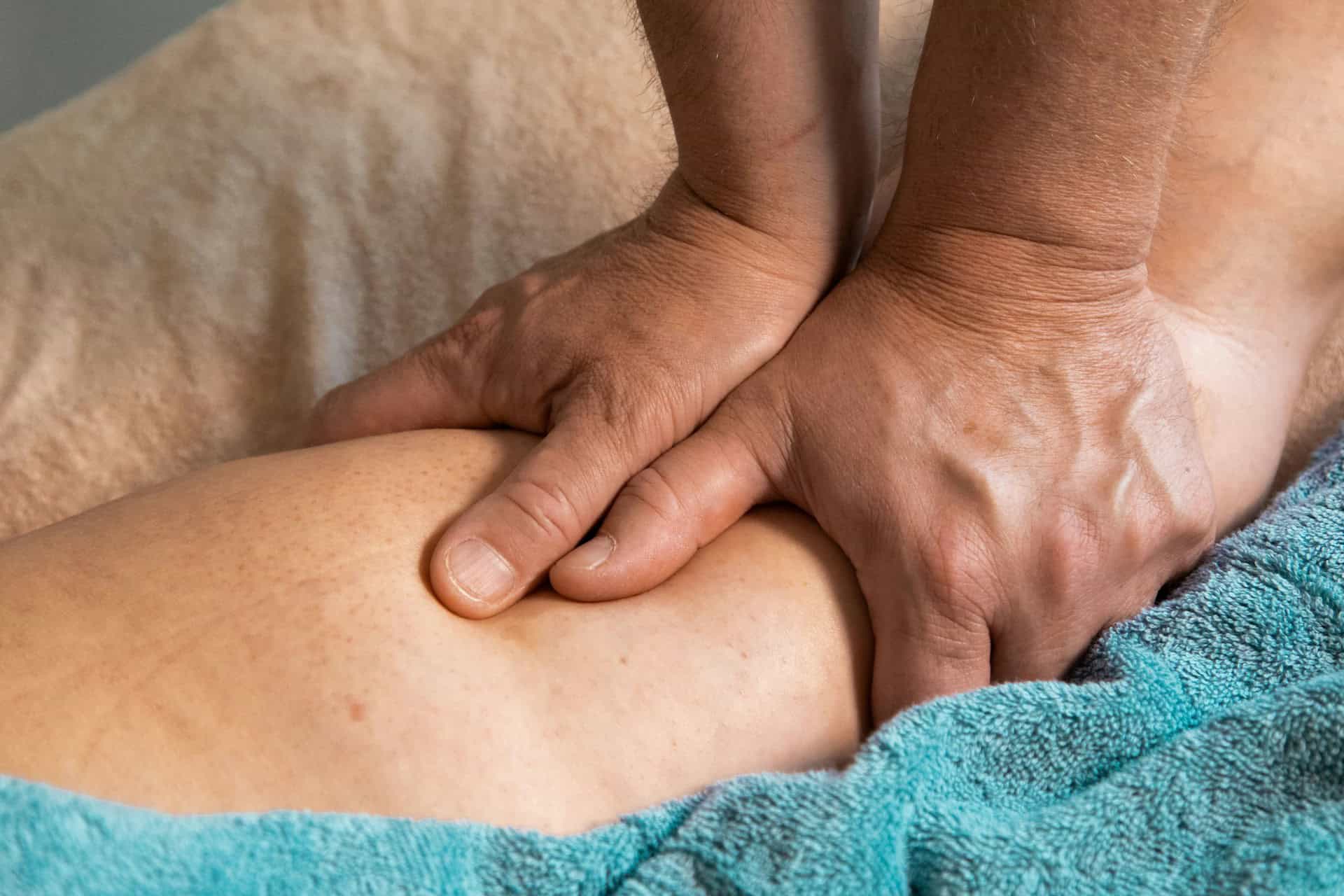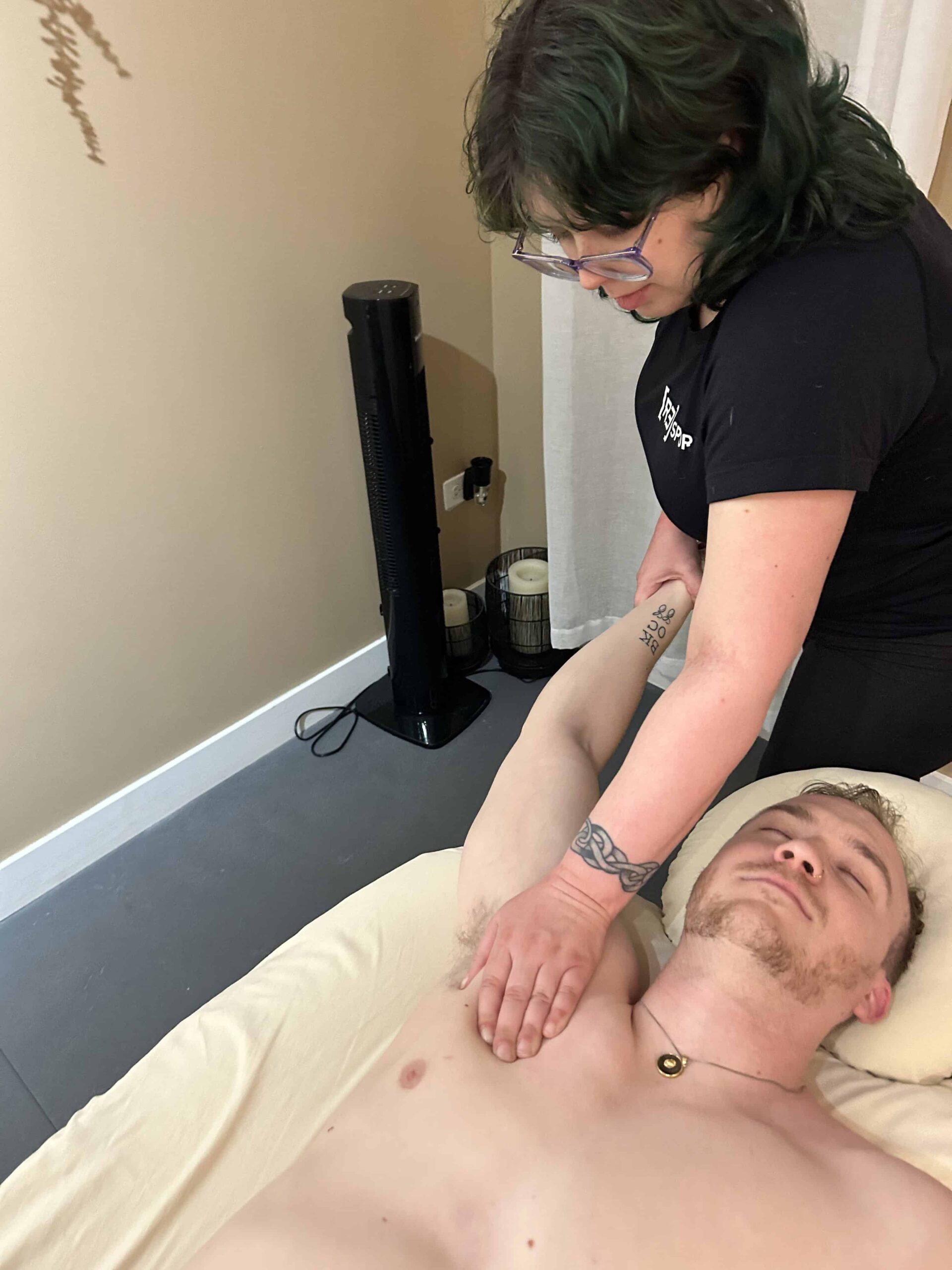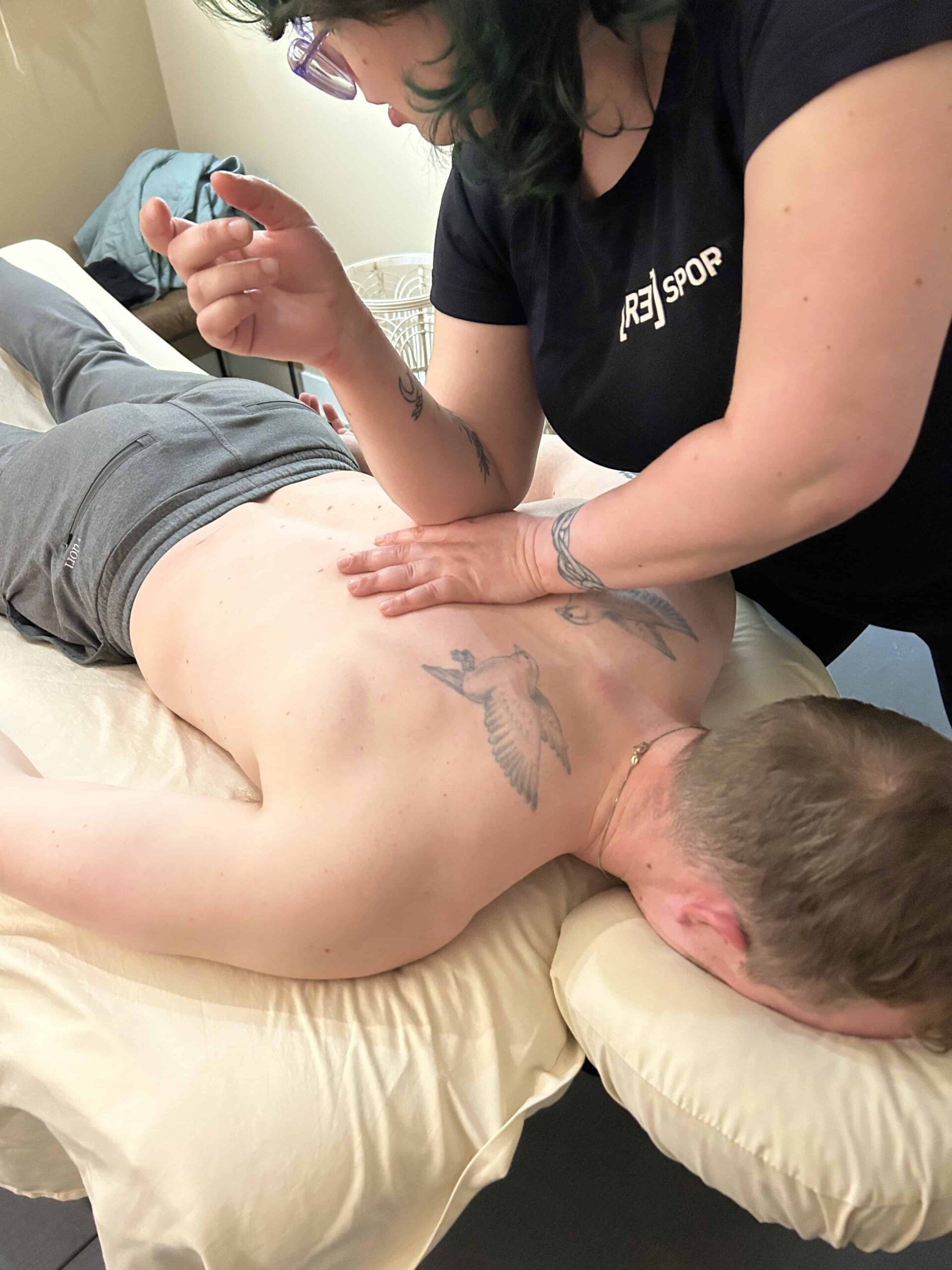
RESTORE massage therapy goes beyond relaxation, focusing on the specific tissue restrictions and range of motion limitations that lead to pain and discomfort. Our skilled therapists utilize specialized clinical massage techniques to deliver targeted pain relief and accelerate recovery.
At RESPORT, we provide skilled, licensed massage therapists who specialize in a variety of integrated massage techniques. When combined with chiropractic care and physical therapy, massage therapy delivers proven, highly effective results that support healing and lasting wellness.
We follow this holistic approach to ensure the safest and most effective path to recovery.
Whether you’re seeking relief from tension, looking to relax strained muscles, or need targeted deep tissue work to support rehabilitation, our therapists are equipped to address a wide range of conditions and imbalances.
Offering 30- or 60-minute sessions and massage therapy care packages, we are confident we have the options you’re looking for.
Let’s help your body move how it was meant to with our comprehensive wellness solutions.

These are often used interchangeably, but there is a difference.
Massage is a general bodywork practice that focuses on improving overall well-being. Pressure may be lighter. You typically get a massage in a spa-like setting with someone with adequate massage training but may not be as well-versed in anatomy, physiology, and biomechanics.
Massage therapy is more involved and often has a therapeutic goal in mind. Therapists are typically more knowledgeable in anatomy and physiology, and treatment plans are more customized for conditions such as pain management and injury rehabilitation.
Our massage therapy techniques offer whole-body care by manipulating the soft tissues to promote physical relaxation and reduce tension, effectively aiding recovery.
Massage therapy has many therapeutic benefits, nurturing physical and emotional balance and integrity. These benefits are typically intensified when massage therapy is used to complement chiropractic care and physical therapy.
Our doctors and certified therapists have seen therapeutic massage’s powerful effects on many patients and how it can contribute to their wellness, performance, and function. Our clinic offers impactful massage therapies based on the individual’s needs and injury.


Trigger points are found throughout the body and are often referred to as knots. They generally garner localized, tender areas in a muscle.
Our skilled therapists treat trigger points by applying sustained pressure to affected trigger points, inducing relaxation and enhancing blood circulation.
We employ various trigger point massage methods, such as direct pressure, massage tools, foam rollers, and even dry needling, to tailor an approach to your unique needs.
Trigger point therapy has many benefits, such as alleviating pain, enhancing range of motion, and optimizing muscle function. It’s excellent for headaches, migraines, and chronic pain syndromes.


Fascia is connective tissue surrounding and supporting your muscles, bones, and organs. Your fascial network connects all your muscles, tendons, ligaments, and bones together. When your fascia becomes rigid from overuse, injury, inactivity, stress, and other conditions, you may experience tightness and restricted motion.
Here’s what our soft tissue mobilization can do for you:


Our approach to pre- and post-pregnancy massage offers a safe and gentle way to support your well-being and comfort during this tremendous but often challenging time.
You may experience various discomforts throughout your pregnancy. Massage therapy can ease aches and pains, promote better sleep, and reduce stress and anxiety—all essential for a calmer and healthier pregnancy journey.
Your body is working hard to heal. Massage therapy can help reduce swelling, improve circulation, and promote muscle relaxation.
The best part is that pregnancy massages often provide a mood booster for those with a newfound, fluctuating disposition.
Learn more about our pregnancy massage techniques and ask us about our pregnancy chiropractic care solutions.


Sports massage offers numerous benefits, including improved circulation, reduced muscle tension, and faster recovery after intense physical activity.
It helps prevent injuries, enhances flexibility, and boosts athletic performance, supporting active people along their athletic journey.
Regular sports massage sessions can also relieve stress, promote relaxation, and improve mental well-being, making it ideal for everyone from elite athletes to active individuals and weekend warriors.


Our targeted massage therapy focuses on resolving your specific issues and achieving lasting pain relief.
Restore massage can help:
Combining massage therapy with chiropractic care, physical therapy, and personal training offers a faster, safer path to reaching your wellness goals. This integrative approach promotes organic healing, strengthening, and improved range of motion through personalized care.
At our Old Town clinic, our doctors and therapists collaborate to design a wellness plan tailored to your needs, supporting your overall health and well-being.
Benefits of our treatments include:
Experience expert care without the need for medication or invasive procedures. Let us help you move, feel, and live better—with solutions that truly support your body.
Massage therapy is a smart, proactive way to support your body’s health and function. Whether you’re healing from an injury, managing pain, improving mental well-being, or supporting better athletic performance, it delivers meaningful, lasting results.
Our licensed massage therapists provide relief for multiple musculoskeletal dysfunctions and symptoms that include:
You shouldn’t have to live with limitations that hold back your physical or mental performance. Our integrated clinic is here to identify the root of your discomfort and treat it directly so you can move with purpose.
Using proven, natural, and noninvasive methods that work together, we help you reclaim optimal physical function. With a track record of real results, we’re confident our approach can enhance your quality of life.
Our holistic care plan may include:
Our experienced, highly trained team is dedicated to delivering exceptional care through the latest, most effective techniques.
Relief is within reach—schedule your appointment and take the first step toward living fully and actively, as you should.